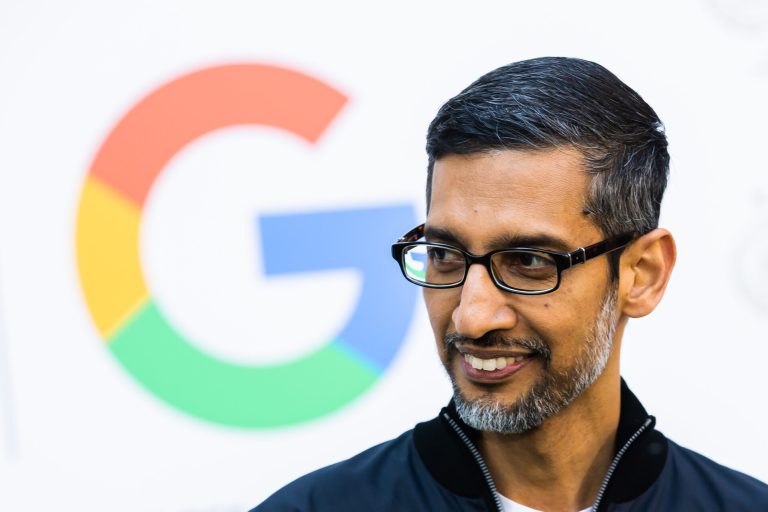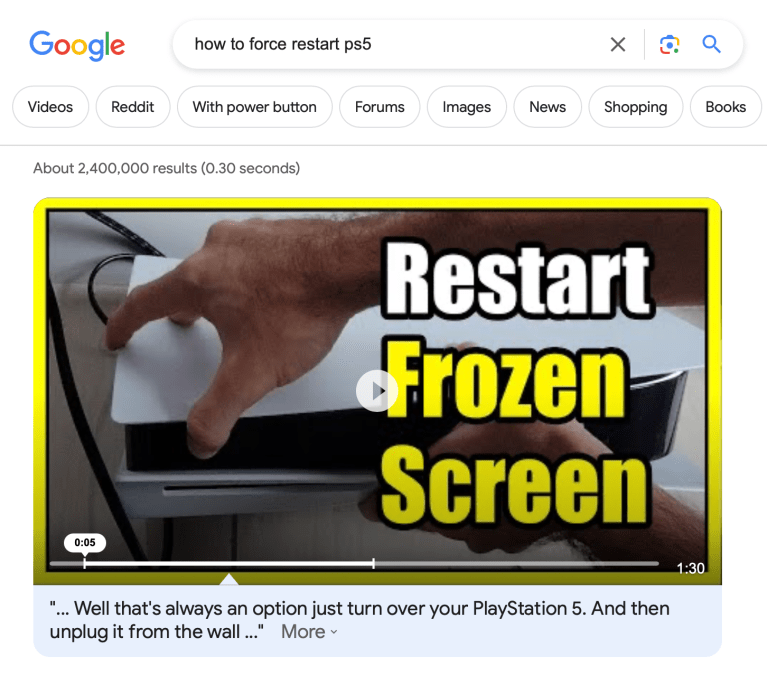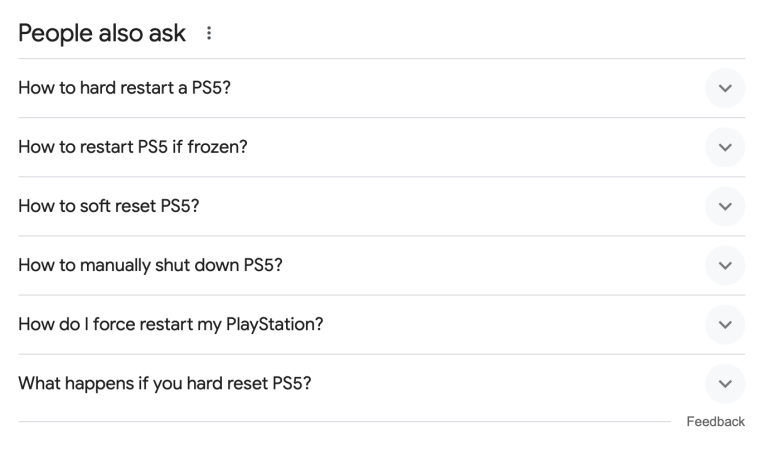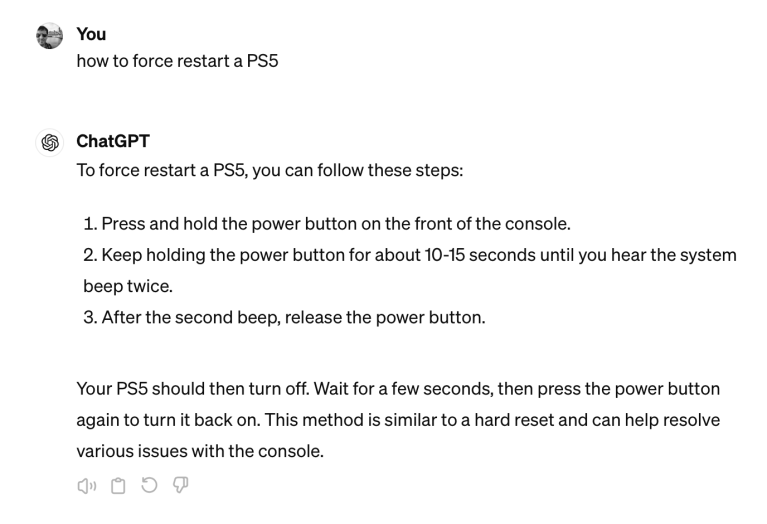Next week is going to be a busy one for AI-focused technology news. Apple CEO Tim Cook is expected to tease new AI software features at next week’s iPad event in advance of the full unveiling of those features at WWDC 2024. And then there’s the ongoing rivalry between OpenAI and Google, with the latter rumored to be working on a paid AI-based search product — while the former is poised to ratchet up its head-to-head rivalry with Google ahead of Google I/O.
As has been rumored for at least a few weeks now, OpenAI looks set to make what might be the most significant challenge yet to Google and hit the search giant right where it hurts. Rumors have begun to circulate that OpenAI may announce its own search engine as soon as May 9, just a few days before the opening of Google’s annual developer conference.
In and of itself, the fact of OpenAI launching its own search engine is big news. The company has got to be closing in on a $100 billion valuation at this point, making it one of the most well-resourced challenges Google has faced to date (setting aside Meta cramming a new Meta AI tool into all of its products; yes, you’re technically “searching” with Meta AI but I don’t get the sense that there’s mainstream uptake there yet).
 Sundar Pichai, CEO of Google and Alphabet, attends a press event to announce Google as the new official partner of the Women’s National Team at Google Berlin. Image source: Christoph Soeder/dpa
Sundar Pichai, CEO of Google and Alphabet, attends a press event to announce Google as the new official partner of the Women’s National Team at Google Berlin. Image source: Christoph Soeder/dpa
As far as OpenAI and some sort of Google Search rival, meanwhile, the clues that something new is coming have been stacking up at a pretty rapid clip lately. For one thing, recent SSL certificate logs reveal that OpenAI has secured the domain “search.chatgpt.com.” OpenAI also already has a web crawler, and Microsoft’s Bing uses a customized version of GPT-4 for search.
Tech. Entertainment. Science. Your inbox.
Sign up for the most interesting tech & entertainment news out there.
By signing up, I agree to the Terms of Use and have reviewed the Privacy Notice.
Likewise, OpenAI CEO Sam Altman hasn’t exactly been hiding that some sort of Google Search rival might be in the works. “The intersection of LLMs plus search, I don’t think anyone has cracked the code on yet,” Altman told Lex Friedman during a recent appearance on the latter’s podcast. “I would love to go do that. I think that would be cool.”
During that same podcast interview, by the way, Altman also took a few potshots at Google (but you really had to listen for them): “If the question is (whether) we can build a better search engine than Google or whatever, then sure, we should.
“Google shows you, like, 10 blue links — like, 13 ads and then 10 blue links — and that’s, like, one way to find information. But the thing that’s exciting to me is not that we can go build a better copy of Google Search, but that maybe there’s just a much better way to help people find, act on, and synthesize information.”
In hindsight, maybe Google laying off a bunch of core employees and hiring cheaper workers in India wasn’t the best response to the strong growth in quarterly profit that the company reported a few days ago (enough to push the market cap of parent company Alphabet above the $2 trillion mark). You only have to open your eyes, meanwhile, to get a sense of just how much Google Search has decayed as a useful and efficient way to find information — notwithstanding the company’s protestations during the just-wrapped DOJ antitrust trial that Google is still the best search engine.
It was also revealed during that trial that the company pays Apple $20 million to be the default search option on iPhones. You know, because Google is just such an amazing search option that they feel like paying for that privilege.
To go back to the OpenAI news, though — seriously, tell me which of these search experiences you’d actually prefer:
Say you’re trying to figure out how to force restart your PS5 console. Naturally, you might turn to Google and type the query “How to force restart PS5.” What do you get in response?
A YouTube video in position one. If it was me, I’d skip that one, though. That’s because I’m trying to figure this problem out, and I don’t have time to watch ads and the annoyances of a video begging you to hit like and subscribe at the beginning.

Maybe this video is cleaner than that, but I don’t think it’s unreasonable to expect Google to just surface this simple, straightforward information from somewhere on the web in a form that I can read.
So let’s keep going.
Ah, a “People Also Ask” box is next, just below that video in position one. This should be useful! Other people are also asking Google this same question. Hopefully, this will be asked and answered right here, in a nice, convenient snippet walking me through the how-to.

I’ll tap that first drop-down. Let’s see what we have here.

Oh, joy. Another video! Google, I seriously do not have time for this. If I wanted to screw around with a video, I would actually go directly to YouTube.
I suppose it’s time to see what OpenAI’s ChatGPT can do with this same query.

Would you look at that? Simple, quick, and convenient. No muss, no fuss. No garbage widgets competing for attention, sponsored links, or ads jammed in your face. I’m already salivating at the prospect of OpenAI bringing this kind of experience to a separate search product of some kind.
I suspect, eventually, there will be case studies of the degree to which Google took one of the most successful and money-making tech products in history and ran it inexorably into the ground. For those of us in the world of publishing, Google’s search updates stopped making any kind of sense a long time ago, never mind what Google employees like John “If people click on it, it must be useful content” Mueller espouse on X/Twitter.
In fact, speaking of Mueller, just look at this X/Twitter thread he engaged in a few days ago to get a sense of what a vile company Google is today. Here, he’s speaking to someone whose site traffic has been abruptly destroyed. That person asks him, “What can I do if a page that always ranked at #1 suddenly is not findable in the SERP? Not even with my site in the search query?”
Nothing is always at #1. The web, search, users – they’re always dynamic.
— John 🧀 … 🧀 (@JohnMu) April 29, 2024
Why should it never happen? Ranking #1 does not mean that it’s a good result now, or that it was then. I don’t mean to be harsh, but the advantage of the web is that it moves quickly. That’s also a challenge sometimes.
— John 🧀 … 🧀 (@JohnMu) April 29, 2024
Translation: We can do whatever we want, the algo is gonna algo. Another once-great tech company, hollowed out by the vultures of the manager class.
>>> Read full article>>>
Copyright for syndicated content belongs to the linked Source : BGR – https://bgr.com/business/it-looks-like-openai-is-about-to-make-googles-worst-nightmare-come-true/










